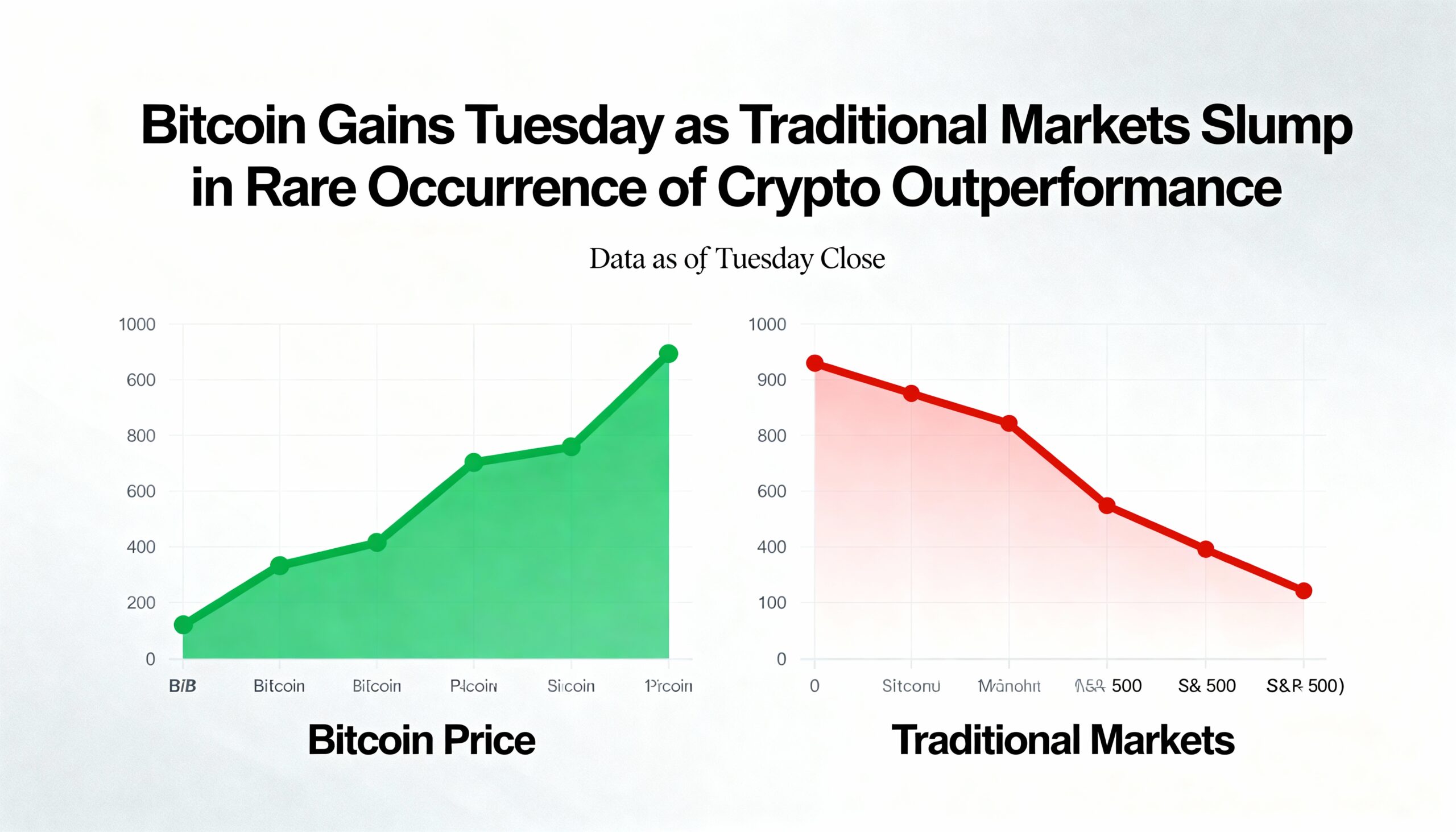As Swiss Yields Dip Below Zero and U.S. Rates Climb, Bitcoin May Stand to Benefit
A growing split in global bond markets could have bullish implications for Bitcoin, as Switzerland re-enters negative rate territory just as U.S. yields march higher amid fiscal strain and geopolitical uncertainty.
President Donald Trump’s intensifying trade war appears to be producing asymmetric effects across global economies. On one side, Swiss government bond yields have slipped back into negative territory, with the two-year yield falling to -17.8 basis points, according to Investing.com. In contrast, U.S. Treasury notes with comparable maturities are yielding over 4%.
This widening yield gap reflects diverging inflation expectations: surplus economies like Switzerland and parts of the eurozone face deflationary pressures, while deficit-driven economies like the U.S. battle rising inflation and debt concerns.
Historically, such macro bifurcations have served as a tailwind for Bitcoin, which thrives as a hedge when traditional financial systems appear stressed or misaligned.
“The last time Swiss yields turned negative, we saw coordinated global easing and a surge in demand for alternative assets,” said pseudonymous macro strategist EndGame Macro on X. “What we’re seeing now echoes 2019, only with even more fiscal and geopolitical complexity.”
Indeed, the European Central Bank and Swiss National Bank have already cut rates this year, potentially prompting capital to rotate into harder assets with perceived monetary sovereignty — a role Bitcoin increasingly plays.
Adding to the narrative, U.S. fiscal imbalances — including record debt and higher funding costs — are raising concerns over long-term dollar strength. This could accelerate diversification away from U.S. assets and toward decentralized stores of value like BTC.
Notably, Bitcoin’s explosive 2020–2021 bull run, which took the asset from $5,000 to over $60,000, unfolded during a time when negative-yielding government bonds peaked globally, reinforcing the view that Bitcoin can benefit when traditional financial instruments lose their appeal.
As rate policies diverge and capital searches for alternatives in a fragmented global economy, Bitcoin could once again become a primary beneficiary of monetary uncertainty.





